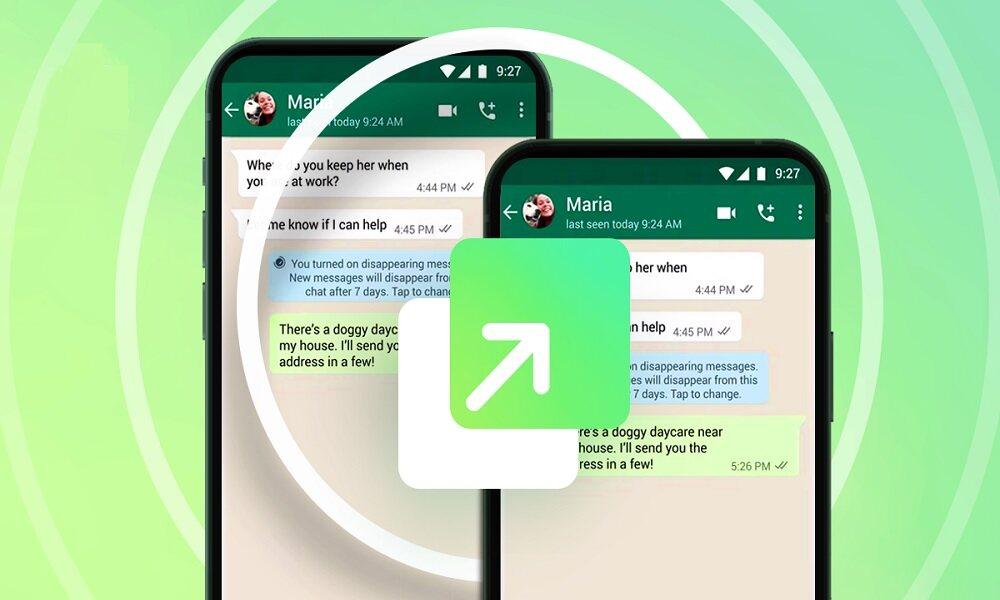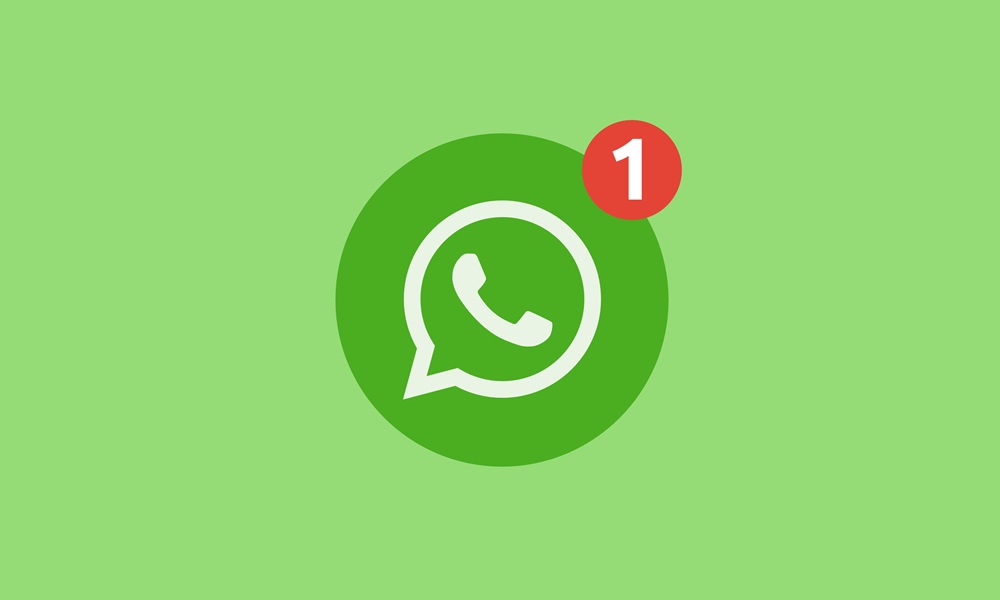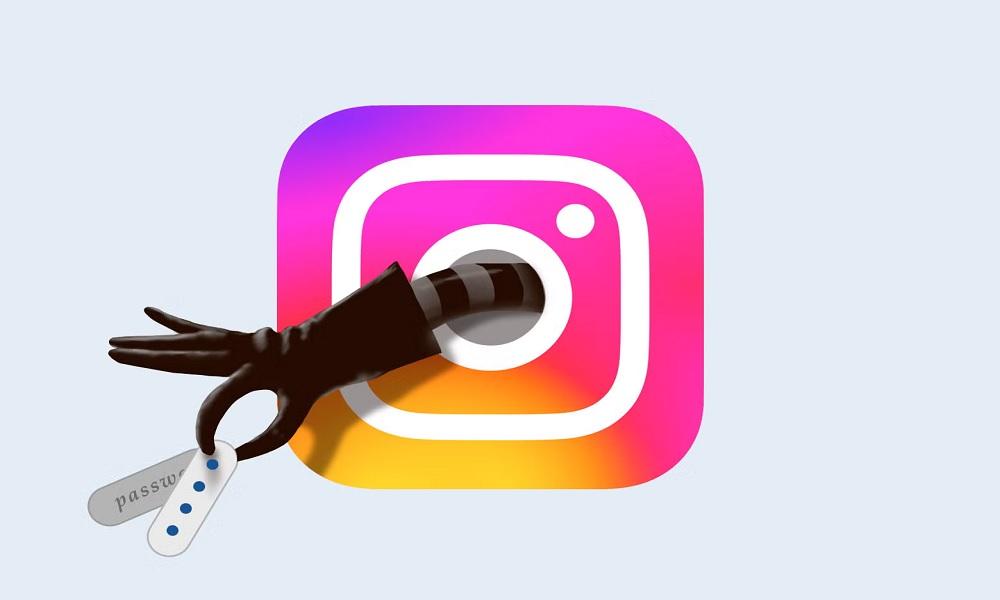Revealing 8 Shocking Ways - Is Discord Used for Cheating?

Is Discord used for cheating? If you're asking this, you're not alone. Whether you're a student, gamer, partner, or parent, you must understand exactly how Discord is being used.
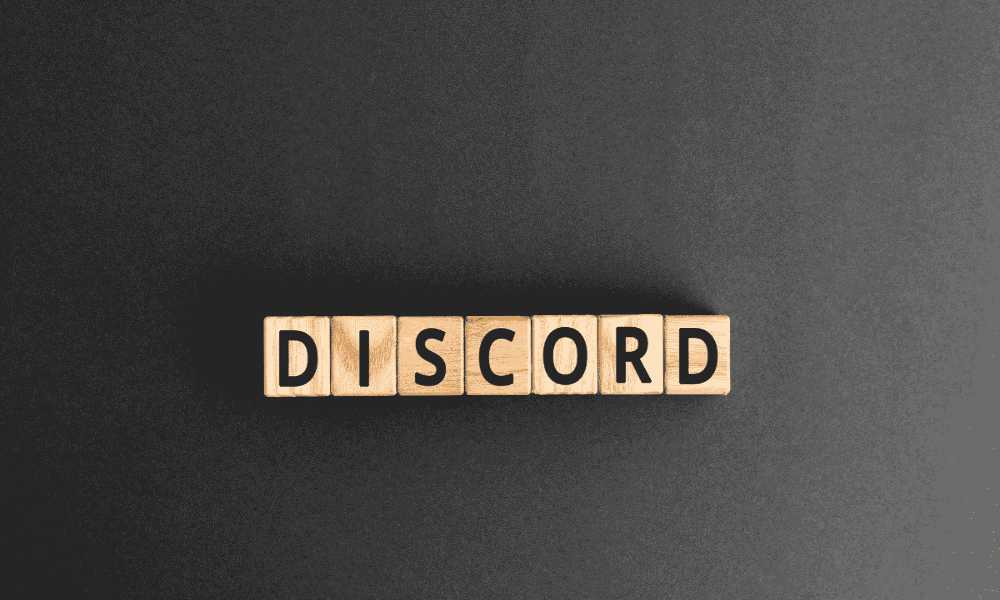
This blog provides information about real-world use cases, breaks down the cheating angle, and offers practical ways to protect yourself or your loved ones.
Understanding Discord: More Than Just a Chat App
Discord is a free, voice, video, and text communication platform primarily designed for gamers but has since evolved into a popular tool for a variety of communities.
Launched in 2015, it allows users to create or join servers——dedicated spaces for communication that can be organized by topics, interests, or projects.
These servers can be public or private and consist of different channels for text chats, voice conversations, or video calls.
Discord supports rich media sharing, and file uploads, and even integrates with other apps and games. Its core features also include direct messaging, customizable user profiles, and the ability to host live streams.
Discord can be used for cheating. Its user-friendly interface and cross-platform availability have made it a go-to platform for online communities, from casual chats to professional team coordination
This makes it one of the fastest-growing social communication tools in recent years.
Uses of Discord
Discord is a versatile communication platform with many different uses. Here are some of the main ways people use Discord:
- Gaming: The most popular use of Discord is for communication between gamers during online multiplayer sessions.
- Community Building: People use Discord to create communities around shared interests, such as art, technology, music, and more.
- Educational Purposes: Students and educators use Discord for study groups, virtual classrooms, and project collaboration.
- Content Creation: Many content creators use Discord to engage with their followers through exclusive channels, live streams, and behind-the-scenes content.
- Business Communication: Discord is used by remote teams and businesses to communicate and collaborate on projects. It offers channels for team discussions, file sharing, and video conferencing.
- Event Hosting: Discord is commonly used to host virtual events, including webinars, online workshops, and gaming tournaments.
- Private Messaging: Users can send direct messages, share files, and engage in private one-on-one conversations in a secure environment.
8 Shocking Ways People Use Discord for Cheating
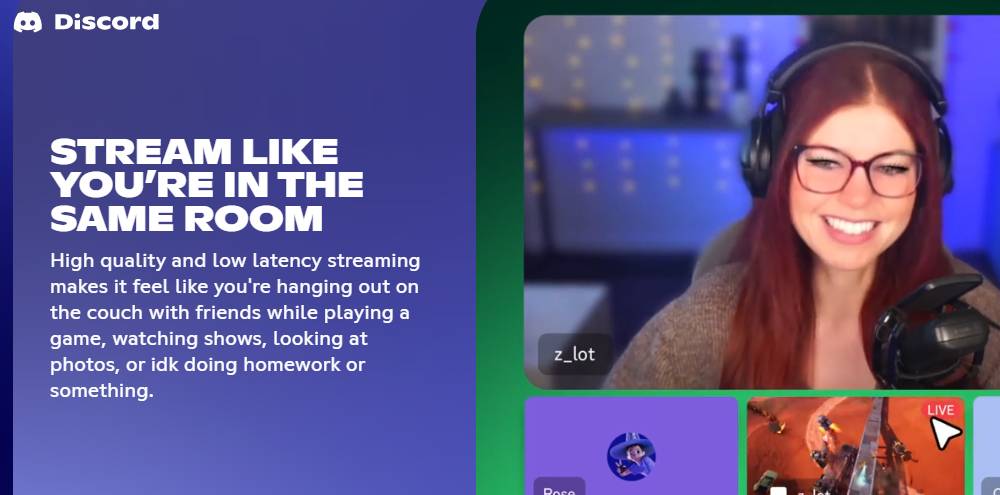
You might think Discord is just for chatting with friends or joining gaming communities, but there's a darker side you need to know about.
Below are 8 shocking ways people have been using Discord to cheat, manipulate, and bypass systems without getting caught.
1. Academic Cheating During Online Exams
With the shift to online learning, exams have gone digital. Unfortunately, so has cheating.
Students are using Discord to set up private servers where they share answers, and screenshots of test questions, and even hop on voice calls during exam time.
Why it matters: If students are getting outside help during tests, grades become meaningless.
This undermines academic fairness and can even impact college admissions and job opportunities.
What you can do: Schools should implement multi-device proctoring systems and disable access to communication tools during exams.
Parents and teachers should have honest conversations about academic integrity and the long-term risks of cheating.
2. Romantic Infidelity Through Secret Messaging
Cheating in relationships has taken a digital turn. While most people keep an eye on Instagram DMs or WhatsApp, Discord often flies under the radar.
It's used to create private chatrooms, initiate video calls, and even run entire servers just for two.
Why it matters: These secret channels can foster emotional or physical infidelity. What makes it worse is how easy it is to hide these interactions using nicknames and invisible mode.
What you can do: If you're in a relationship, maintain open communication. If your partner becomes unusually secretive about their online activities, that's a red flag.
3. Game Cheating & Match Fixing
In competitive online gaming, Discord is a hotspot for organizing teams and discussing strategies.
But it's also being used for cheating. Players use it to share enemy locations, employ aimbots, or hire others to play on their behalf to boost rankings.
Why it matters: This kind of cheating ruins the competitive balance. Honest players are demotivated, and the integrity of tournaments is questioned.
What you can do: Game developers should integrate anti-cheat mechanisms that detect background communication apps.
Gamers themselves need to advocate for clean gameplay and report unethical behavior when they see it.
4. Bypassing Exam Proctors
Some students go beyond the usual cheating tactics by using Discord on separate devices during online exams.
For example, they might keep a smartphone hidden just out of webcam view and receive answers in real time.
Why it matters: This makes online exams completely unreliable. Institutions may start questioning online certifications altogether.
What you can do: Schools must enforce strict proctoring with screen sharing and camera monitoring.
Parents should ensure that extra devices are out of reach during exam times and talk to their children about integrity.
5. Workplace Info Leaks
Corporate data is at risk as employees increasingly use Discord to share sensitive files or vent about internal issues.
Since many businesses don't monitor Discord traffic, it's an easy platform for leaking documents or confidential strategies.
Why it matters: Leaked information can lead to lawsuits, reputation damage, and financial loss.
What you can do: Employers should conduct cybersecurity training and make clear policies about which apps are approved for workplace communication.
Any device connected to corporate resources should have activity monitoring and encryption.
6. Hidden Online Relationships
Some teens and adults use Discord to create relationships behind their loved ones' backs. The platform allows voice chats, live video, and hidden servers that can be easily renamed or deleted.
Why it matters: These secret interactions can lead to emotional betrayal, online grooming, or exposure to inappropriate content.
What you can do: For teens, parents should set boundaries on internet use and encourage openness.
For couples, any noticeable behaviour changes——like secretive chatting——should prompt a respectful conversation.
7. Cheating in Contests or Online Challenges
Online quizzes, hackathons, and talent competitions are often meant to test individual skills. But Discord is used as a backchannel for people to collaborate when they shouldn't.
Participants often mute Zoom or Teams and run side chats in Discord.
Why it matters: It's unfair to those playing by the rules, and it invalidates the purpose of the contest.
What you can do: Organizers should limit communication tools during the event and audit suspicious results.
Educators and employers running these challenges should emphasize the importance of ethical behavior.
8. Coordinating Unauthorized Collaborations
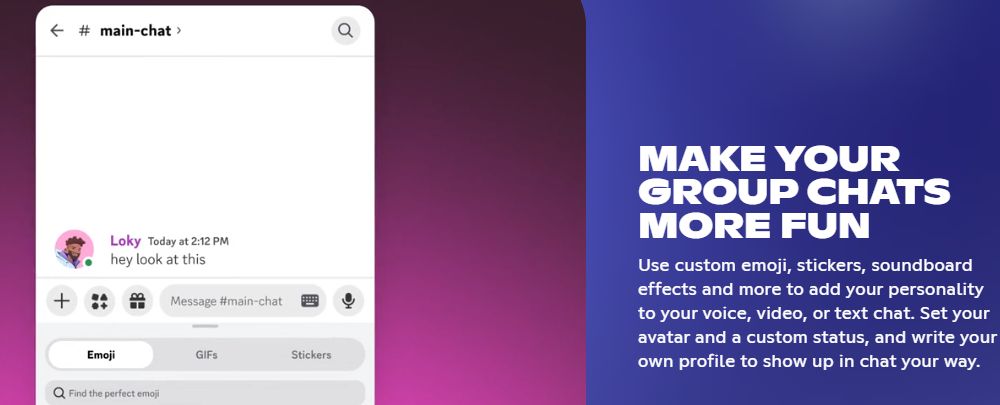
Remote students and employees sometimes use Discord to work together on assignments or tasks that are supposed to be completed independently.
With voice chat, screen sharing, and file-sharing tools, unauthorized teamwork becomes seamless.
Why it matters: It disrupts grading fairness in academics and can impact performance reviews at work. It also deprives individuals of growth and accountability.
What you can do: Institutions should define clear digital collaboration policies. Teachers and managers should regularly check progress through solo tasks or one-on-one assessments.
Introducing SafeMyKid: The Best App to Monitor Discord Cheating
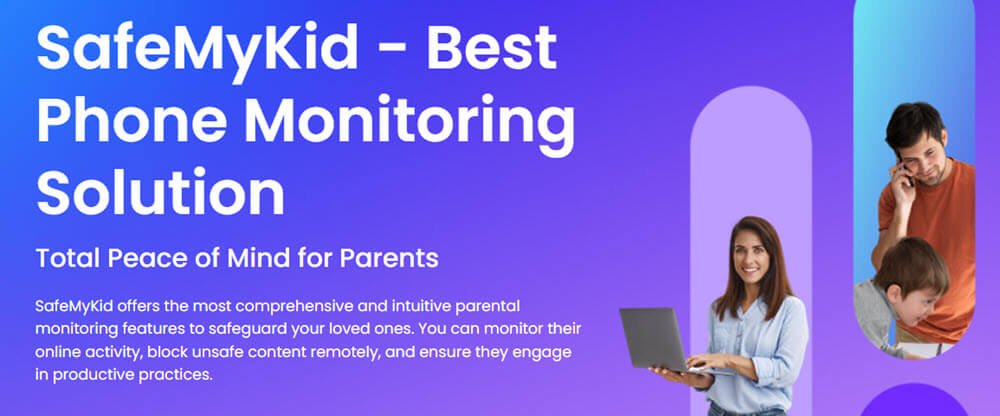
If you're concerned about whether Discord is used for cheating, SafeMyKid offers a comprehensive monitoring solution that provides insight into Discord activities. While originally designed for parental monitoring, SafeMyKid has evolved to help address relationship concerns with powerful features that enable transparent communication.
SafeMyKid can monitor direct messages, server communications, voice call logs, and even deleted content on Discord. The platform operates discreetly in the background, capturing Discord activity to provide a comprehensive view of communications taking place on the platform.
What makes SafeMyKid particularly effective is its ability to work across multiple devices, ensuring that Discord monitoring is consistent regardless of how the application is accessed. The solution provides detailed reports and real-time alerts, allowing for timely awareness of concerning behaviors on Discord.
Key Features of SafeMyKid to Monitor Discord Cheating
When wondering if Discord is used for cheating, SafeMyKid offers several powerful features to help restore trust and transparency:
- Complete Message Access- View all direct messages and server communications, including deleted content
- Media Monitoring- Track images, videos, and files shared through Discord channels
- Voice Call Logging- See the timing, duration, and participants in Discord voice conversations
- Server Tracking- Identify all Discord servers the user participates in, including private ones
- Screenshot Capture- Receive periodic screenshots showing Discord activity in context
- Activity Timeline- Review a chronological history of Discord usage and interactions
- Keyword Alerts- Get notifications when specific terms appear in Discord chats
- Stealth Operation- Monitor Discord activity discreetly without disrupting normal app usage
Setting up SafeMyKid to Monitor Discord Cheating
Step 1. Sign up and Create an Account
Start by creating an account using your email address, ensuring it's valid for registration purposes.

Step 2. Set up The SafeMyKid App
For iOS Devices: No app installation is required. Simply log in with your iCloud credentials to set up monitoring.
For Android Devices: Download and install the SafeMyKid app on your target device.
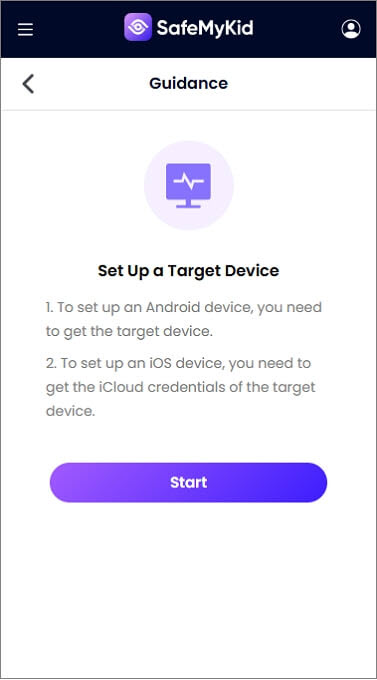
Step 3. Using SafeMyKid to Monitor Discord Cheating
Access the SafeMyKid dashboard and navigate to check the Discord cheating.
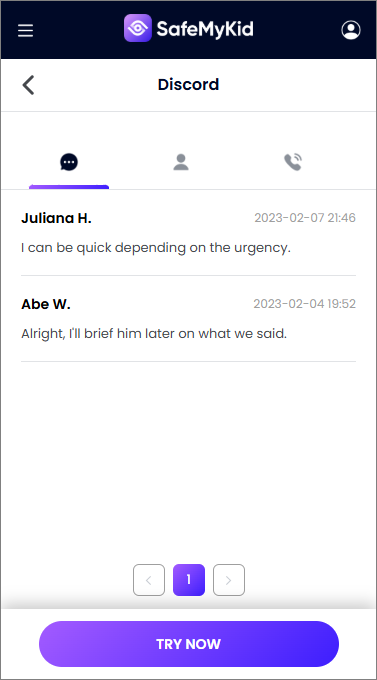
Warning Signs That Discord Is Being Used for Cheating
If you're concerned about a partner's Discord usage, several behavioral patterns might indicate the platform is being used inappropriately:
- Secretive Device Behavior- Your partner quickly changes screens, closes Discord, or angles their device away when you approach.
- Unusual Usage Patterns- They use Discord at odd hours, particularly late at night, or their usage has dramatically increased.
- Password Protection- They've recently added or changed passwords on their Discord account or refuse to share access.
- Defensive Reactions- They become unusually defensive or angry when you ask about their Discord activities.
- Hidden Notifications- They've disabled Discord notifications or keep their phone on silent mode consistently.
- Unknown Contacts- They have private conversations with people they haven't mentioned or introduced to you.
- Unexplained Time Gaps- They attribute unexplained absences or time gaps to "just chatting on Discord".
- Deleted Conversation History- Their Discord channels frequently show deleted messages or empty conversation threads.
- Coded Language- You notice them using unfamiliar terminology or coded language in visible messages.
- Emotional Distance- They've become emotionally distant while simultaneously increasing their Discord usage.
FAQs about Discord
Here are some frequently asked questions to help you better understand how Discord is used for cheating and how to protect against it:
1. Can Discord be used for cheating in online exams?
Yes, students use Discord to share answers and communicate during online exams, which undermines academic integrity.
2. How can Discord be used for cheating in gaming?
Gamers use Discord to share enemy locations, coordinate strategies, or hire others to boost their rankings, compromising fair play.
3. Is it possible to cheat in contests or challenges using Discord?
Yes, participants in online challenges use Discord for backchannel communication, collaborating in ways that violate competition rules.
4. Can Discord be used for romantic infidelity?
Yes, people use Discord's private servers and hidden messaging features to engage in secret relationships, which can lead to emotional betrayal.
Final Thoughts
Let's go back to the main question——is Discord used for cheating? Absolutely. From students gaming the education system to partners hiding conversations, Discord is a double-edged sword.
But now, you know what to look out for. If you're serious about online safety, especially for your kids, then SafeMyKid is your best bet. It's discreet, powerful, and puts you in control.
